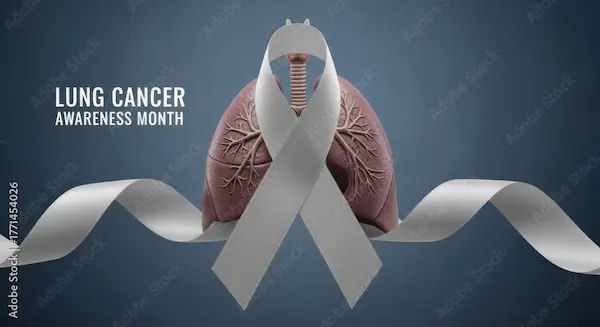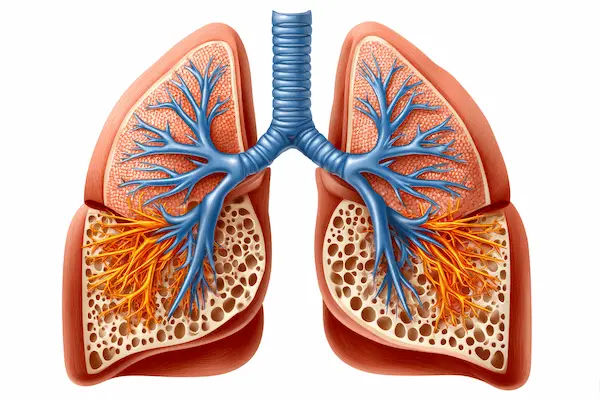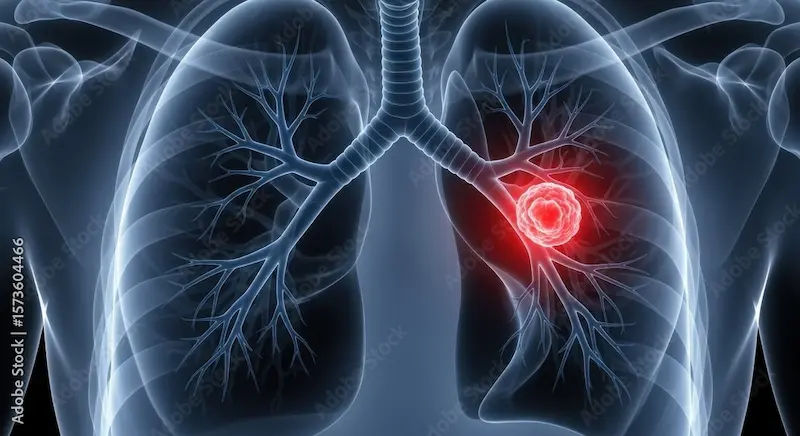A Patient's Guide to Targeted Therapy for Non-Small Cell Lung Cancer
Learn how targeted therapy works for non-small cell lung cancer (NSCLC), the role of biomarker testing, key genetic targets, side effects, resistance, and future treatment options.

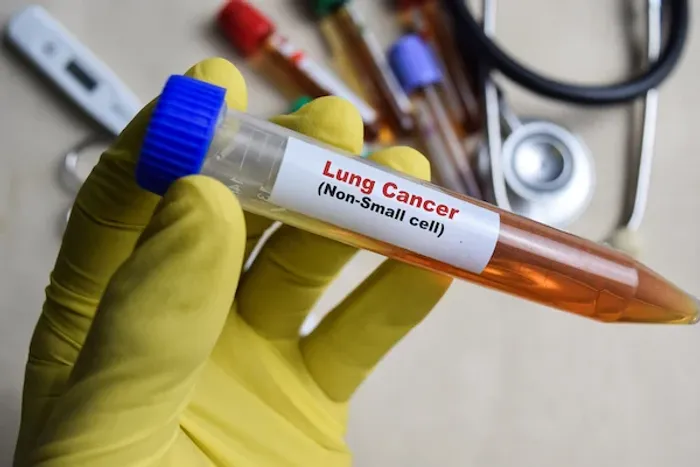
Introduction
Receiving a diagnosis of non-small cell lung cancer (NSCLC) can feel overwhelming. For decades, treatment was often a one-size-fits-all approach, primarily relying on chemotherapy. However, a revolutionary shift has occurred in oncology, moving toward personalised medicine. This guide focuses on one of the most significant advances: targeted therapy. Unlike traditional treatments that attack all rapidly dividing cells, targeted therapies are designed to pinpoint and attack specific molecules that are crucial for cancer growth and survival. Think of it as a key designed to fit a specific lock on the cancer cell. This approach often leads to more effective treatment with fewer side effects. In this article, we will demystify how targeted therapy works for NSCLC, explain the critical role of biomarker testing, explore common genetic targets, and discuss what patients can expect from this modern cancer therapy.
What is Non-Small Cell Lung Cancer (NSCLC)?
Non-small cell lung cancer (NSCLC) is the most common type of lung cancer, accounting for about 85% of all cases. It's a broad term that includes several subtypes, such as adenocarcinoma, squamous cell carcinoma, and large cell carcinoma. While they are grouped together because their treatment approaches and prognoses were historically similar, we now know that their behaviour can differ significantly based on their genetic makeup.
How NSCLC Differs from Other Lung Cancers
The other main type of lung cancer is small cell lung cancer (SCLC), which is less common but tends to grow and spread more aggressively. The distinction is crucial because the treatment pathways for NSCLC and SCLC are very different. Targeted therapy and immunotherapy have become cornerstone treatments for many types of NSCLC, whereas SCLC is still primarily treated with chemotherapy and radiation.
The Shift to Personalised Medicine: What is Targeted Therapy?
Targeted therapy is a form of precision oncology. It works by interfering with specific proteins or genes that contribute to cancer growth and progression. These drugs are "targeted" because they are designed to block the growth and spread of cancer by acting on these specific molecular targets, which are more common in cancer cells than in healthy cells.
Targeted Therapy vs. Chemotherapy: A Key Difference
The fundamental difference lies in their approach. Chemotherapy is a systemic treatment that kills all rapidly dividing cells, both cancerous and healthy (like those in hair follicles and the digestive tract). This is why side effects like hair loss and nausea are common. Targeted therapy, on the other hand, is more selective. By focusing on specific mutations, it primarily affects cancer cells and the signals they use to grow, often resulting in a different, and sometimes more manageable, side effect profile. For example, a common side effect of EGFR inhibitors is a skin rash, rather than the widespread cell damage caused by chemo.
The Critical First Step: Biomarker and Genetic Testing
Before starting any treatment for advanced NSCLC, biomarker testing (also called molecular or genetic testing) is absolutely essential. This is the process that unlocks the door to targeted therapy. It involves analysing a sample of the tumour (from a biopsy) or, increasingly, through a blood test known as a liquid biopsy, to look for specific genetic mutations, rearrangements, or other biomarkers.
Health topic carousel:
Doctor's speciality: Oncology
Text: Consult an Oncologist for the best advice
How Biomarker Testing is Performed
Traditionally, testing is done on a tissue sample obtained from a biopsy or surgery. A pathologist examines the sample to identify the cancer's specific genetic alterations. A liquid biopsy is a less invasive alternative that detects cancer DNA circulating in the bloodstream. It's particularly useful if a tissue sample is hard to obtain or insufficient.
Common Gene Mutations and Biomarkers in NSCLC
Several key "driver" mutations have been identified that fuel the growth of NSCLC. The most common include:
EGFR (Epidermal Growth Factor Receptor): Found in about 10-15% of NSCLC patients in the UK (and more common in non-smokers and Asians).
ALK (Anaplastic Lymphoma Kinase): A rearrangement found in about 5% of patients, often in younger non-smokers.
ROS1, BRAF V600E, KRAS G12C, MET, and RET: These are other less common but actionable mutations for which effective targeted therapy drugs exist.
A Closer Look at Key Targets and Their Treatments
EGFR Mutations and EGFR Inhibitors
For patients with an EGFR mutation, drugs called EGFR inhibitors (e.g., Osimertinib, Erlotinib, Gefitinib) are typically the first line of treatment. These are usually taken as a daily pill. Osimertinib, for instance, is highly effective and can even cross the blood-brain barrier to treat metastases there. A common side effect of EGFR inhibitors includes a skin rash, which can often be managed with supportive care.
ALK Rearrangements and ALK Inhibitors
Similarly, for ALK-positive NSCLC, ALK inhibitors (e.g., Alectinib, Brigatinib, Lorlatinib) have shown remarkable success, often shrinking tumours significantly and controlling the disease for years. These are also oral medications.
Other Important Targets: ROS1, BRAF, KRAS, and more.
The list of actionable targets continues to grow. For example, after decades of research, drugs like Sotorasib are now available for the challenging KRAS G12C mutation. This rapid expansion highlights why comprehensive biomarker testing is so critical—it can reveal a treatment option where none seemed to exist.
What to Expect: Taking Targeted Therapy Drugs
Unlike chemotherapy, which is often given in cycles with breaks, targeted therapy pills for lung cancer are typically taken continuously, every day, as long as they are effective and the side effects are manageable. Patients will have regular check-ups, including scans, to monitor the tumour's response. The convenience of an oral medication allows for treatment at home, significantly improving quality of life for many.
Managing Side Effects of Targeted Therapy
While generally better tolerated than chemotherapy, targeted therapies do have side effects, which vary depending on the drug. Common issues can include diarrhoea, liver problems, fatigue, and skin rashes. It's vital to report any side effects to your healthcare team immediately. Managing these side effects is a key part of treatment, and your doctor can provide medications or adjustments to help you stay on therapy comfortably. If you experience persistent or severe side effects from your cancer therapy, it's important to consult your oncologist. For ongoing management and follow-up care, platforms like Apollo24|7 allow you to easily connect with specialists.
The Challenge of Resistance: What Happens When Treatment Stops Working?
One of the biggest challenges with targeted therapy is acquired resistance. Over time, cancer cells can develop new mutations that make the drug ineffective. This is not a failure but a known step in the journey. When this happens, doctors will often perform another biopsy (tissue or liquid) to identify the new resistance mechanism. This can guide the next line of treatment, which might be a different targeted drug or a combination of therapies, including clinical trials.
The Future of Targeted Therapy for Lung Cancer
Research is moving at an incredible pace. The future involves discovering new targets, developing more potent drugs to overcome resistance, and using combination therapies to outsmart the cancer. The goal is to turn NSCLC into a chronic, manageable disease that patients can live with for many years.
Conclusion
The advent of targeted therapy has fundamentally changed the outlook for many patients with non-small cell lung cancer. By moving away from a blanket approach to a precision strategy, these treatments offer the potential for more effective control of the disease with a better quality of life. The journey begins with comprehensive biomarker testing to identify the right key for your specific cancer's lock. While challenges like side effects and resistance exist, the medical community's ability to manage them and develop new solutions is stronger than ever. If you or a loved one is facing an NSCLC diagnosis, the most important action is to have a detailed conversation with your oncologist about all treatment options, including the vital role of genetic testing. For a comprehensive evaluation and to discuss a personalised treatment plan, you can book a consultation with an oncology specialist through Apollo24|7.
Health topic carousel:
Doctor's speciality: Oncology
Text: Consult an Oncologist for the best advice
Consult Top Specialists for Personalised Tips

Dr Suseela
General Physician
5 Years • MBBS
Bengaluru
Apollo Medical Center, Marathahalli, Bengaluru

Dr Aswathy D C
General Practitioner
6 Years • MBBS
Bangalore
Apollo Clinic Bellandur, Bangalore

Dr. Deeptangshu Ganguly
General Practitioner
12 Years • MBBS , MD (Pharmacology)
Raniganj
The Polyclinic and Pharmacy, Raniganj
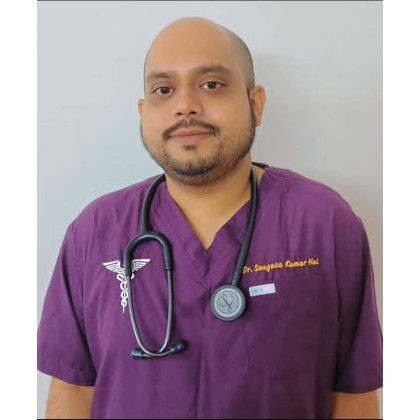
Dr. Sougata Kumar
General Practitioner
8 Years • MBBS
East Midnapore
VIVEKANANDA SEBA SADAN, East Midnapore
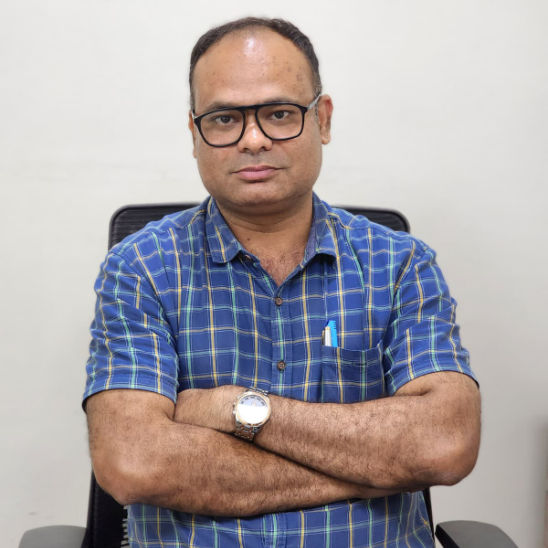
Dr. Debdatta Pati
Psychiatrist
18 Years • MBBS, DPM, MD (PSYCHIATRY)
Kolkata
MCR SUPER SPECIALITY POLY CLINIC & PATHOLOGY, Kolkata
Consult Top Specialists

Dr Suseela
General Physician
5 Years • MBBS
Bengaluru
Apollo Medical Center, Marathahalli, Bengaluru

Dr Aswathy D C
General Practitioner
6 Years • MBBS
Bangalore
Apollo Clinic Bellandur, Bangalore

Dr. Deeptangshu Ganguly
General Practitioner
12 Years • MBBS , MD (Pharmacology)
Raniganj
The Polyclinic and Pharmacy, Raniganj

Dr. Sougata Kumar
General Practitioner
8 Years • MBBS
East Midnapore
VIVEKANANDA SEBA SADAN, East Midnapore

Dr. Debdatta Pati
Psychiatrist
18 Years • MBBS, DPM, MD (PSYCHIATRY)
Kolkata
MCR SUPER SPECIALITY POLY CLINIC & PATHOLOGY, Kolkata
More articles from Lung Cancer
Frequently Asked Questions
Can targeted therapy cure lung cancer?
Currently, targeted therapy is not considered a cure for advanced NSCLC. The goal is to manage it as a chronic disease, controlling growth and spread for as long as possible. However, in earlier stages, it may be used alongside other treatments like surgery to increase the chance of a cure.
What is the success rate of targeted therapy?
Success is often measured by response rates (tumour shrinkage) and progression-free survival (time before the cancer grows). For appropriate targets, response rates can be very high, often 70-80% or more, compared to around 20-30% for chemotherapy alone.
How much does biomarker testing cost, and is it covered by insurance?
Coverage has improved significantly and is now considered standard of care for advanced NSCLC. Most insurance plans, including Medicare, cover it. However, it's best to check with your insurance provider and hospital financial counsellor. Apollo24|7 offers convenient home collection for tests like liquid biopsies, which can be part of this biomarker testing process.
How long can you live on targeted therapy for lung cancer?
There is no single answer, as it depends on the specific mutation, the drug, and the individual. However, for mutations like ALK and EGFR, patients are often able to live for many years, with some studies showing median survival times of several years, as treatments have improved significantly.
Is targeted therapy better than immunotherapy?
Neither is universally 'better.' The choice depends entirely on the biomarkers found in the tumour. Some cancers have targets suited for targeted therapy, while others, especially those with high PD-L1 expression, may respond better to immunotherapy. Some patients may receive both at different times.

